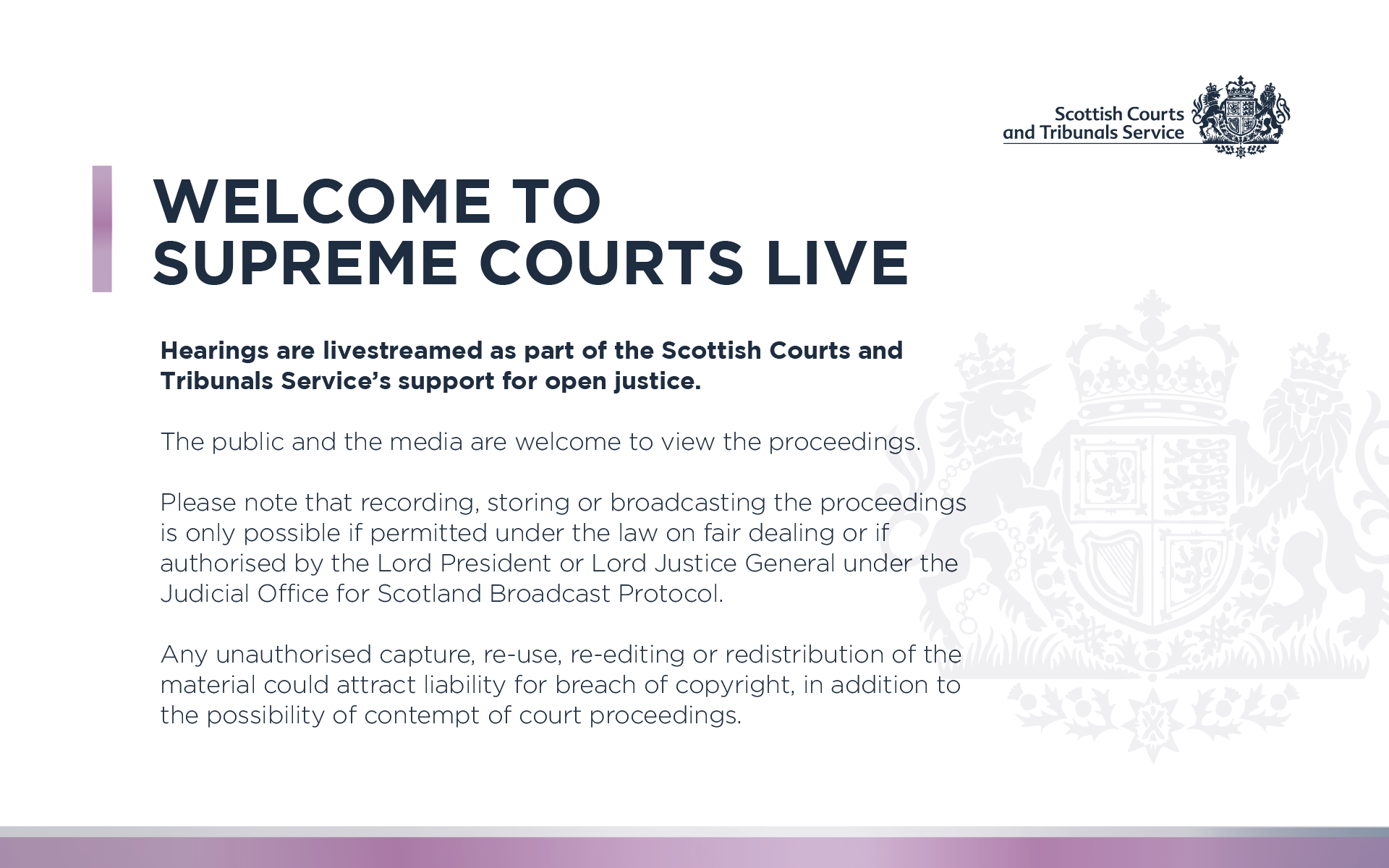Case description
There is an anonymity order in place for this matter concealing the identity of the Pursuer. She is to be referred to simply as “X”. The anonymity order in respect of the First Defender was revoked on 25th October 2023.
The Pursuer, X, is a legal practitioner. The First Defender holds the office of sheriff. The Third Defender is the Lord Advocate. The Pursuer alleges that the First Defender assaulted and harassed her in May-August 2018. The first two incidents took place in a court building, whilst the second two took place away from court premises. The Pursuer avers the First Defender was at fault at common law and in breach of the Protection from Harassment Act 1997. The First Defender denies the alleged conduct.
The Pursuer considers that the Crown is vicariously liable for the First Defender’s alleged acts. The Lord Advocate disputes that the Crown is vicariously liable, and also says that the action against the Crown is time-barred in so far as founded upon the first two incidents because it was raised outside the three-year time-limit in s17 of the Prescription and Limitation (Scotland) Act 1997.
On 1st – 2nd December 2022 the action called for debate before the Lord Ordinary on the following three issues:-
- Who is the appropriate law officer to represent the Crown?
- Does the Crown have any vicarious liability for the First Defender’s alleged actings? and
- Is the case in respect of the Crown time-barred?
The Lord Ordinary held that the appropriate law officer was the Lord Advocate. No issue is taken with that conclusion. The Lord Ordinary answered the remaining questions as follows:
Vicarious Liability
The First Defender was a servant of the Crown, and his relationship with the Crown was akin to that of an employee. In relation to the first and second incidents the court could not say without hearing evidence whether there was a sufficiently close connection between the alleged wrongful actings and the First Defender’s position as a sheriff. On the other hand, the Pursuer was bound to fail to establish a sufficiently close connection between the alleged third and fourth incidents and the First Defender’s position as a sheriff.
Time-bar
The Pursuer’s common law claim against the Third Defender in respect of the first and second incidents was time-barred (paragraphs [41] and [53]). There was no good reason to exercise the s 19A power allow it to proceed though brought out of time.
The Lord Ordinary declined to rule upon the time-bar plea directed against the Protection of Harassment Act claim..
Interlocutor
In his interlocutor dated 2 March 2023 the Lord Ordinary excluded from probation the Pursuer’s averments about the acts alleged to have been done by the First Defender on 18 May and 5 July 2018 (the first two incidents) but only in so far as they related to the common law claim based upon delictual liability and appointed a proof before answer “for the remaining issues”.
Both parties now appeal.
The Third Defender argues that the Lord Ordinary erred in finding that there was a “relationship akin to employment” between the First Defender and the Crown. He also erred in failing to hold that there was not a sufficiently close connection between the first and second incidents and the acts which the sheriff was authorised to perform. He also erred in failing to sustain the time-bar plea.
The Pursuer argues that the Lord Ordinary erred in holding that the Pursuer had not pled a relevant case of vicarious liability in respect of the third and fourth incidents; and that he erred in refusing to exercise his discretion under s19A of the 1973 Act to allow the common law delictual claims arising from the first and second incidents to proceed although out of time.
The hearing will be live-streamed.

